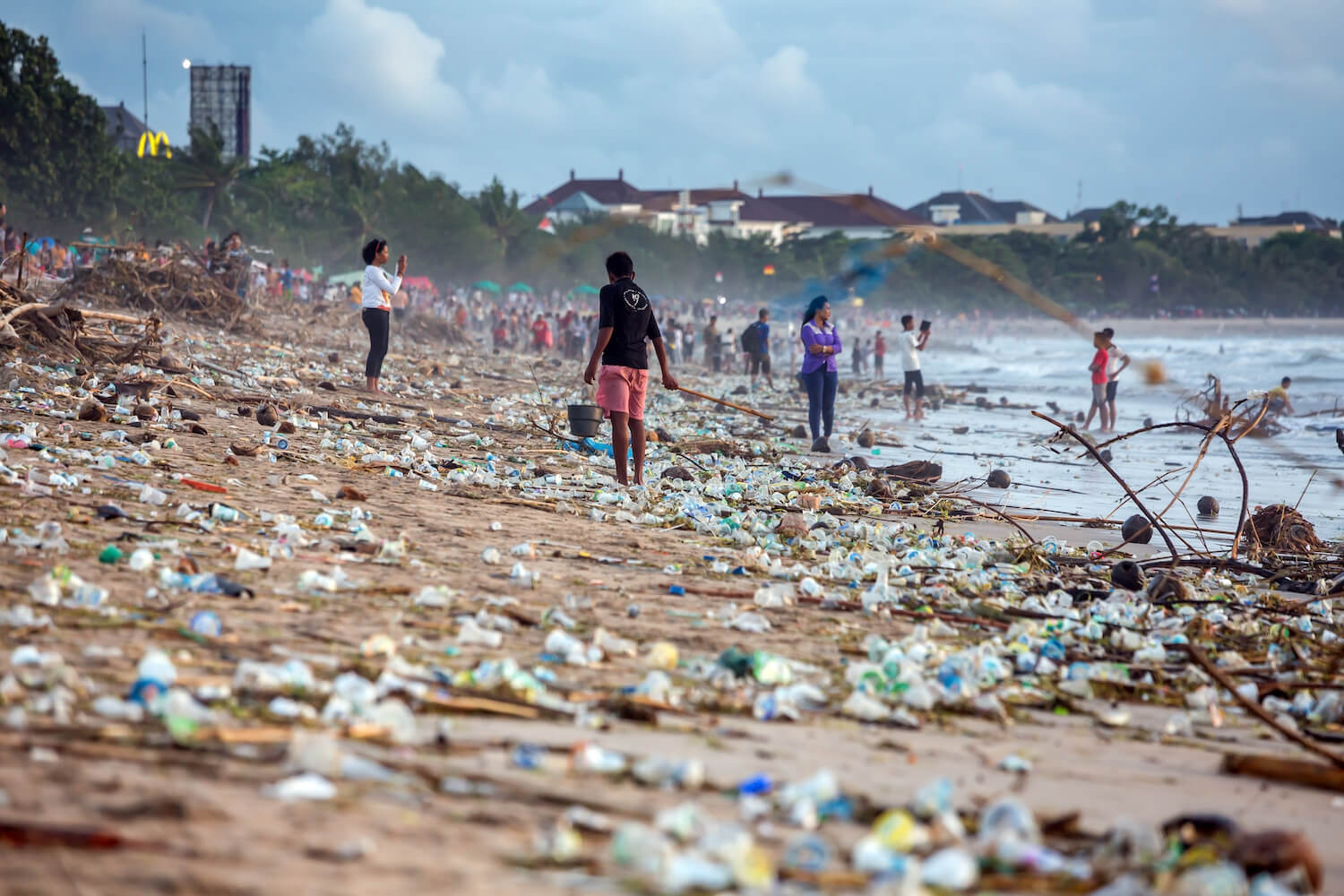In the small town of Tangerang, just outside Jakarta, two women saw an opportunity to turn the local waste management problem into a business.
The waters around the Indonesian capital contain some of the highest levels of plastic waste of any sea in the world. Flowing past large populations and industry centers and through some of the world’s busiest shipping lanes, millions of pieces of plastic find their way into the sea and wash up on beaches like those near Tangerang.
The women created Tridi Oasis, a company that recycles waste PET bottles into rPET flakes, which are sold to create packaging and textiles. Within three years, Tridi Oasis expanded its production capacity to 1,000 metric tonnes per year and began to sell its flakes internationally. But the sudden onset of the pandemic and challenges to enter the higher-priced European market proved hard to overcome.
In search for additional capital and technical support, the company received its first investment from Circulate Capital, a Singapore-based VC, in 2020. The investment accelerated Tridi Oasis’ growth and culminated into a joint venture with a global recycling and waste management company to scale its model and feed the growing appetite for recycled plastics in food and beverage.
Circular economy
With Southeast Asia a hotspot for ocean plastic leakage in recent years, markets like Indonesia offer significant opportunities to address the global crisis. Tridi Oasis is one of hundreds of businesses across the region laying the foundations for what they and policymakers hope will become a thriving circular economy.
The company serves as a good example of how targeted investment can create and support recycling infrastructure where it’s most needed, and deliver significant economic, environmental and social outcomes. The problem is there isn’t yet enough private capital available to grow the circular economy at scale.
New research by The Circulate Initiative has revealed for the first time that the scale of annual private investment into plastics circularity across emerging markets sits well short of the estimated $27.5 billion needed annually to create basic waste management infrastructure. Between 2018 and 2022, a yearly average of $810 million of private investments made its way to plastic circularity solutions in these economies.
In Indonesia, estimates of annual private capital flow into plastics circularity currently sit at $32 million between 2018 and 2022, significantly lower than the estimated $18.4 billion that will be needed between 2017 and 2040 to achieve appropriate levels of plastic waste collection, sorting, recycling, recovery and disposal alone.
While SMEs and start-ups driving innovation critical to plastics circularity efforts are starting to see funding flow into the sector, distribution of capital is uneven. Just 5.1% is being invested into seed and early-stage companies, with the remaining later-stage transactions involving more established firms.
Significantly more money is needed to help up-and-coming businesses sustain their growth and move into more mature phases of development. Similar to Tridi Oasis, they can make a difference in their local communities, but need to be supported to scale that impact on both national and global levels.
Catalyzing capital
Although there is significant potential for impact, waste management and recycling are often overlooked as an investment opportunity. Most impact investors do not have sufficient knowledge of waste management opportunities and the sector is often considered as a public service on which it is challenging to generate a return on investment.
As an investment opportunity, waste management and recycling needs patient capital and won’t attract the kind of venture capital that is looking for the next tech unicorn. For these reasons, it may never attract the scale of private capital it needs without government and multilateral intervention.
The Circulate Initiative’s research points to the essential role that governments, global corporations and multilateral cooperation – like the development of the global plastics treaty – must play to fill the financing gap that is standing in the way of creating a sustainable circular economy.
There are examples where policy initiatives have been effective in directing capital towards fighting plastic pollution. Policies such as Extended Producer Responsibility schemes have been used to incentivize investment, reduce risk and support a cohesive ecosystem for plastics circularity. Innovative financing instruments such as blended finance schemes and Blue Bonds have emerged to raise funds toward ocean conservation projects. But to date, these have been lacking in the scope necessary to shift the needle.
In recognition of this gap, the UN’s High-Level Advisory Board on Effective Multilateralism is looking into reforms to the financial architecture to help funnel more public and private financing to global issues, including sustainability.
Of course, creating a circular economy is not just about managing plastic waste already in the environment. It is also about turning the plastic tap off entirely. While the data shows that most private investment is currently directed to ‘downstream’ solutions such as aggregators and recycling companies, it is anticipated that as technology advances, funding into ‘upstream’ solutions – like plastic alternatives – will follow.
In the meantime, as we tackle the existing crisis, the global plastics treaty is the instrument that we are pinning our hopes on. The world has been in this fight for many years, without a clear pathway and consensus, so let’s hope that governments, business and investors will collectively create an instrument that turns commitments of ending plastic pollution into action.
Umesh Madhavan is research director at The Circulate Initiative, a non-profit organisation committed to solving the ocean plastic pollution challenge and advancing an inclusive, sustainable circular economy across emerging markets.











